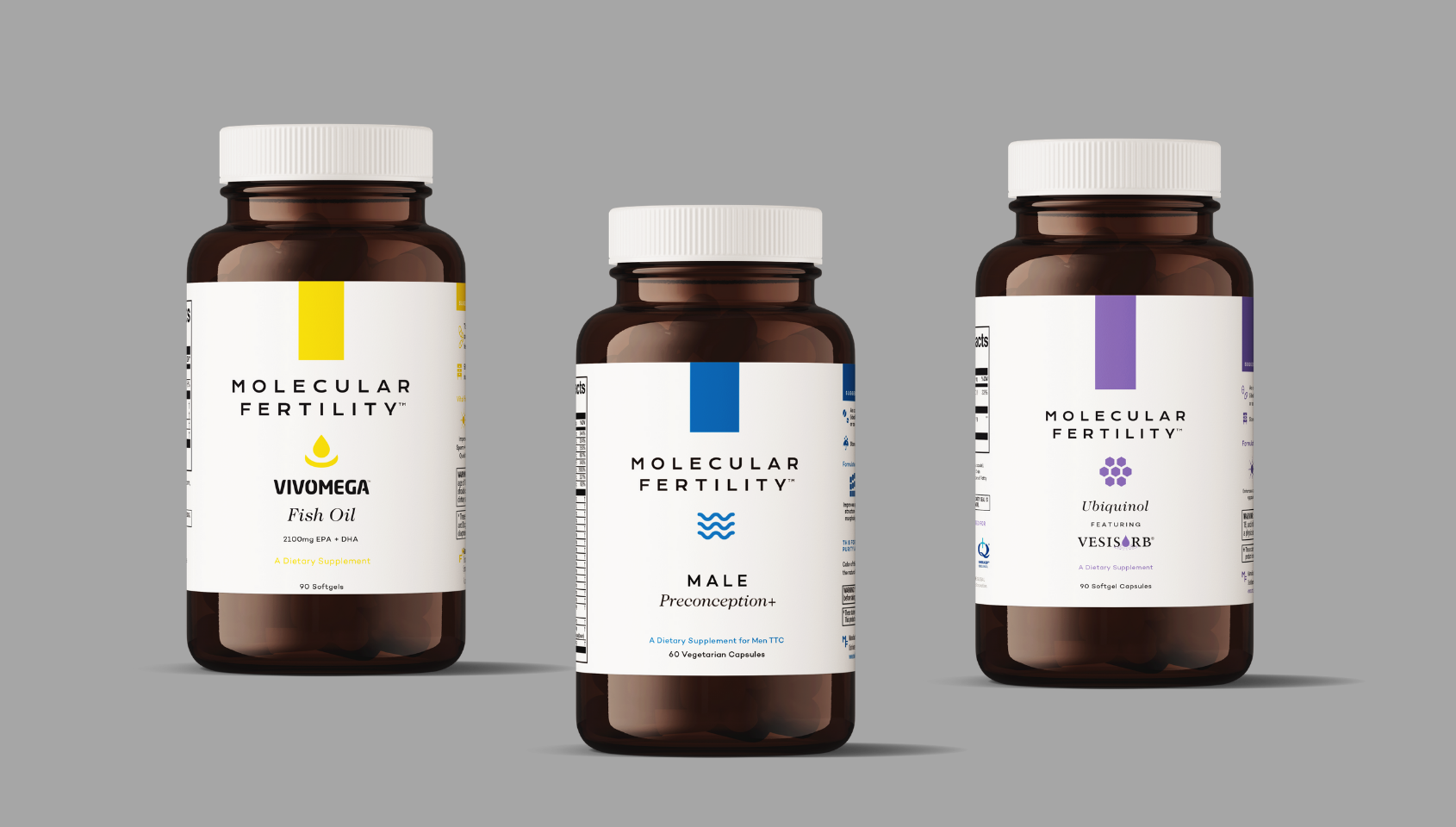10 Vitamins and Supplements to Increase Sperm Count
We discuss various nutrients and dietary supplements in this article that may or may not be helpful. If you purchase recommended products, services, or treatments, it may benefit CNY Fertility financially. Read more about our financial relationships here. The supplements discussed in this article are not intended to treat, cure, or prevent any disease. If you are pregnant, take any medications, or have been diagnosed with a medical condition, consult with a healthcare provider before taking any dietary supplement.

If you or your partner is experiencing fertility issues due to low sperm count, know that you’re not alone.
Sperm count can be influenced by many factors including smoking, radiation, varicocele, infection, urinary tract infections, nutritional deficiencies, and oxidative stress.
This article covers sperm health basics and provides information from studies on vitamins, minerals, ayurvedic medicines, and supplements that have been demonstrated to help support a healthy sperm count.
What is Sperm Count?
Sperm count is exactly what is sounds like: the total number of sperm present in a man’s ejaculate.
Sperm count is calculated by counting the number of sperm in a small sample of ejaculate, and then multiplying that by the total volume of semen collected. And don’t forget that sperm and semen are different things — more on that now.
Sperm
Sperm cells (also known as spermatozoa) are the male reproductive cells. Sperm has two main components: a head, and a tail called the flagellum. Sperm are what fertilize a female’s egg during conception.
Semen
Semen (aka seminal fluid) is the male reproductive fluid. Semen has a whitish color and gets ejaculated from the male reproductive tract during sex. Semen helps keep sperm alive until it has a chance to reach the female’s egg.
What is Considered a “Normal” Sperm Count?
Normal sperm count can vary depending on several factors. According to the WHO, normal sperm count varies from 39 million on the low end to 928 million on the high end.
True oligospermia, the medical term for low sperm count is based on the number of sperm per ml of semen.
- Mild oligospermia = 10 to 15 million sperm/mL.
- Moderate oligospermia = 5 to 10 million sperm/mL.
- Severe oligospermia = 0 and 5 million sperm/mL.
Vitamins, Minerals, and Supplements to Increase Sperm Count
Malnutrition of many sorts along with oxidative stress can reduce one’s sperm count. Fortunately taking supplements can help to counteract nutritional deficiencies and increase antioxidant levels to protect sperm. The following nutrients have all been demonstrated to increase sperm count:
Below, we will go into detail on the above-mentioned vitamins, minerals, and supplements.
Vitamin C
Vitamin C is one of the most important antioxidants. Unlike most other mammals, humans can’t make vitamin C, which means we need to get it through our diet.
Studies show that vitamin C may help to increase many parameters of sperm health, including sperm count. In one study, vitamin C supplementation helped to double the sperm count of some participants. Study participants also experienced increased sperm motility and decreased amounts of deformed sperm cells.
Vitamin B12
Vitamin B12 is a pro-metabolic vitamin that’s involved in many different aspects of cellular energy production.
B12 is essential to the sperm production process. Researchers have found that supplementing with vitamin B12 is just as effective as supplementing with antioxidants when it comes to supporting healthy sperm count.
Zinc
Zinc is one of the most important micronutrients for males. Zinc has been demonstrated to raise testosterone, promote fertility, and foster muscle growth.
Low zinc levels, on the other hand, have been tied to reduced male fertility. Studies show that low zinc is correlated with low sperm count, poor sperm quality, and decreased fertility rates.
Thankfully, it’s easy to get enough zinc through diet alone. Eating plenty of red meat, eggs, and other animal products should ensure adequate zinc status. Oysters are an especially great zinc source.
If those foods don’t sound appetizing to you, or just want to make sure you’re getting enough, you should certainly consider some zinc supplements to help support your sperm count.
One more important benefit of zinc: it can help maintain your male hormones in the face of intense exercise. Overdoing it on the field or in the gym can tank your testosterone levels, but supplementing with zinc can help to reverse this undesirable change. Zinc’s ability to maintain T is just one more way that it can help support men’s overall fertility and sperm count.
Vitamin D
Vitamin D is unique in that it’s both a vitamin and a hormone. Vitamin D affects an impressively wide range of physiological functions — including male fertility.
One 2019 review of 18 studies found that men with higher D levels had improved overall fertility and sperm count.
Considering that roughly 40% of U.S. adults have a vitamin D deficiency, ensuring vitamin D intake through dietary sources and/or sunlight is a wise choice. If you live in a cold or cloudy area, supplementation might be necessary.
Folate
Folate is another B vitamin that’s important for fertility. Some studies have demonstrated that folate supplementation can help to increase sperm count.
CoQ10
CoQ10 (Coenzyme Q10) is an enzyme and antioxidant that protects sperm from oxidative stress and other types of degradation.
Interestingly enough, Co-Q10 is found within seminal fluid — and higher concentrations of it are correlated with high sperm count and improved sperm motility. Studies show that supplementing with Co-Q10 can increase its presence within the semen, boosting fertility in the process. Other studies have also found that Co-Q10 supplementation increases sperm count.
There’s a reason CoQ10 is highly regarded by fertility specialists and it’s certainly a supplement you should consider adding to your routine when trying to increase your sperm count.
Ashwagandha
Ashwagandha (Withania somnifera) is a shrub native to India and North Africa. With dozens of therapeutic properties, Ashwagandha has been used in Ayurvedic medicine for thousands of years!
Modern science shows us that Ashwagandha contains withanolides and other compounds that may help support fertility. One study found that ashwagandha use caused a 53% increase in semen volume, a 57% increase in sperm motility, and a 167% increase in sperm count.
While nobody can guarantee a 167% increase for you, adding an Ashwagandha supplement to your sperm count regimen is probably a good idea.
Shilajit
Shilajit is a tarry, sludgy substance produced from the fossilized remains of plant products. In today’s mineral-depleted world, shilajit is an unusually rich source of dozens of trace substances and minerals.
Studies show that shilajit supports improved testosterone levels and that it can boost sperm counts by up to 64%.
Omega 3 fatty acids
Omega 3s are essential fats that possess a wide array of health benefits.
They provide just the right amount of structure to many kinds of cells, including sperm cells. Studies show that omega-three levels are highly correlated with male fertility health.
Lycopene
Lycopene might be most famous for being the natural pigment in tomatoes, but it’s much more than that.
Studies show that this bright red substance may improve sperm counts by as much as 70%. Many other fruits are shown to increase sperm count and motility as well.
Consider eating lots of tomatoes or adding a supplement that contains lycopene to your daily routine to help support sperm count and fertility health.
Recommended Supplements to Increase Sperm Count
When it comes to finding the best male fertility supplements, diversity is key. The ideal supplement for improving sperm motility will have an extensive blend of ingredients that all work together to maximize fertility.
At CNY Fertility, we developed our own line of science-backed and premium supplements designed to help support sperm health and sperm count called Molecular Fertility.
Male Preconception+: CNY’s Go to Male Preconception Vitamin to Increase Sperm Count
We recommend a supplement called Molecular Fertility’s Male Preconception+ to help support sperm count and fertility.
Fish Oil to Increase Sperm Motility

Omega 3 fatty acids are another vital part of the male fertility puzzle. In addition to getting enough omega 3s, it’s important to maintain a balanced omega 3:6 ratio.
The easiest way to rebalance your ratio is to supplement with omega 3. However, some omega 3 fish oil supplements may contain heavy metals, oxidized fats, or other known contaminants. Not all fish oil is equal!
Molecular Fertility’s VIVOMEGA Fish Oil contains 2,000 milligrams of omega-3 per serving, and it’s derived from non-GMO fish and tests above all international fish oil standards.
Co Q10 Supplement to Increase Sperm Motility

Coenzyme Q10 is one of the most effective antioxidants for improving sperm motility.
While the Male Preconception+ supplement contains a good amount of CoQ10, those looking for an extra boost should turn to Molecular Fertility’s stand-alone CoQ10 supplements. Both of Molecular Fertility’s VESISORB® COQ10 and VESISORB® UBIQUINOL supplements use a patented delivery/absorption technology called VESIsorb® which has been shown to increase the bioavailability of Coenzyme Q10 by 600%.
When/How Long to Take Vitamins to Increase Sperm Count
Remember, sperm take 72-90 days to develop. Because of this, most fertility experts recommend taking supplements for 90 days or longer to see the best results. If this isn’t possible 30 days or could still help.
Other Tips to Support Healthy Sperm Counts
While these vitamins and supplements can provide a great boost to your sperm count, lifestyle factors are important to consider too. That’s because fertility is directly tied to more general health markers like energy levels and body composition.
Here are 4 additional pro-fertility tips that may help to improve your fertility.
Improve Your Body Composition
Consider using a keto or carnivore diet to promote a healthy weight and to potentially increase fertility. Many men who lose weight find that their estrogen levels go down and their testosterone levels go up.
Get Adequate Sleep
Both inadequate sleep and poor sleep hygiene have been correlated with reduced semen quality. Be sure to get at least 7 or 8 hours of sleep per night to avoid this state.
Limit Alcohol Intake
Heavy alcohol consumption raises estrogen levels, reduces testosterone levels, and may negatively impact fertility. Keep your alcohol usage low-moderate if you’re trying to boost your fertility naturally.
Avoid Eating too Much Soy
Soy products are rich in isoflavones and other phytoestrogens, both of which are correlated with reduced testosterone and lower semen quality.
The Bottom Line Supplements to Increase Sperm Count
Low sperm count and motility are common problems among men and may reduce your chances of conception.
Thankfully, vitamins, minerals, and antioxidants like those presented in this article have been demonstrated to support healthy sperm counts. If getting these nutrients from food is difficult or impractical, consider supplementation.


